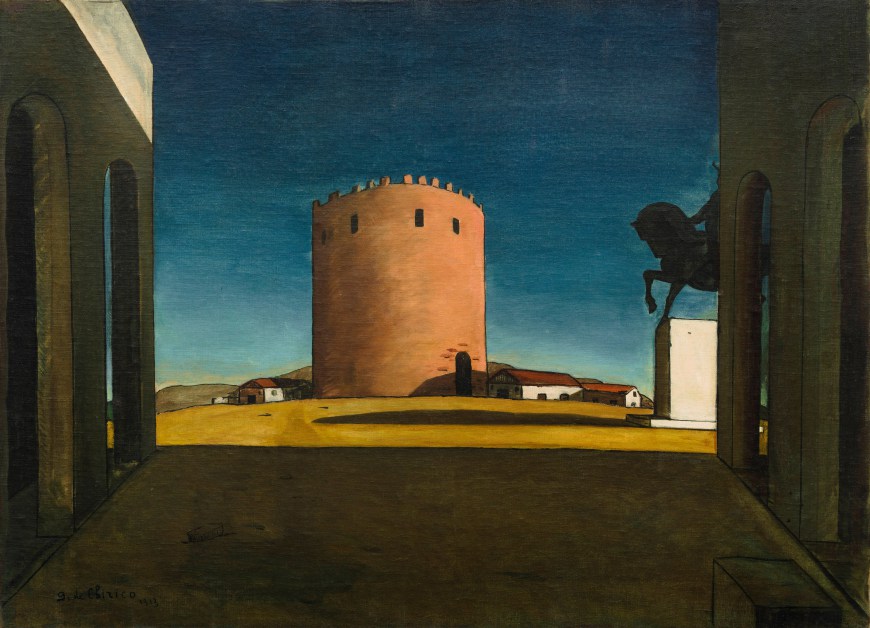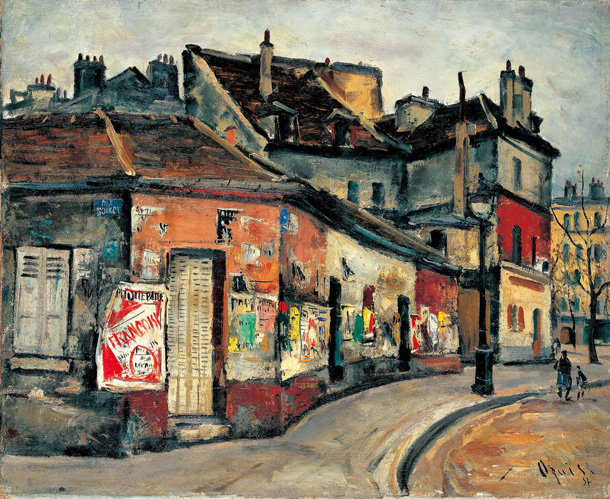To start with, this was mostly about books, and I think it will end that way too. But it begins with a not terribly controversial statement; hero worship is not good. And the greatest figures in the fight for human rights or human progress of one kind or another – Martin Luther King, Jr, Emmeline Pankhurst, Gandhi – without wishing to in any way diminish their achievements – would not have achieved them alone. Rosa Parks is a genuine heroine, but if she had been the only person who believed it was wrong for African-American people to be forced to give up seats for white people, the practice would still be happening. These individuals are crucial because they are catalysts for and agents of change – but the change itself happens because people – movements of people – demand it.
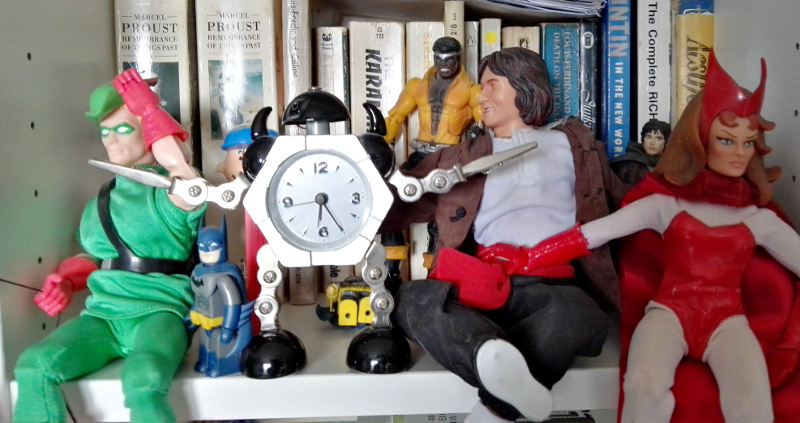
This is obviously very elementary and news to nobody, but it’s still worth remembering in times like these, when people seem to be drawn to messianic figures, or to elevate people with no such pretensions to quasi-messianic status. One of the problems with messiahs is that when they don’t fulfil the hopes of their followers, their various failures or defeats (of whatever kind) take on a cataclysmic significance far beyond the usual, human kind of setback and re-evaluation. It’s only natural to feel discouraged if your political or spiritual dreams and hopes are shattered, but it’s also important to remember that the views and opinions that you were drawn to and which you agree with belong to your too. They are likely to be shared by millions of people and the fact that they are also apparently not shared by a greater number in no way invalidates them or renders them pointless.
The history of human progress is, mostly, the history of people fighting against entrenched conservative views in order to improve the lives of all people, including, incidentally, the lives of those people they are fighting against. This obviously isn’t the case in ultimately ideological revolutions like those in France or Russia, which quickly abandoned their theoretically egalitarian positions in order to remove undesirable elements altogether, or the Nazi revolution in Germany, which never pretended to be inclusive in the first place. Hopelessness, whether cynical or Kierkegaard-ishly defiant, is a natural response to depressing times, but the biggest successes of human rights movements – from the abolition of slavery to the enfranchisement of women to the end of apartheid in South Africa to the legalisation in various countries of abortion or gay marriage – have often taken place during eras which retrospectively do not seem especially enlightened; if you believe in something, there is hope.
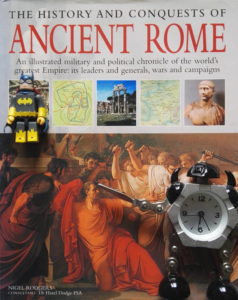
But if change is largely driven by mass opinion and group pressure – and it demonstrably is – why is it the individual; Rameses II, Julius Caesar, Genghis Khan, Napoleon, Garibaldi, Lenin, Hitler, the Dalai Lama, Queens, Kings, political leaders – that looms so large in the way we see events historically? Anywhere from three to six million people died in the “Napoleonic Wars” – Napoleon wasn’t one of them, his armies didn’t even win them, in the end; but they are, to posterity, his wars. There i more than one answer, and one has to do with blame, but the short answer is I think because as individuals, it is individuals that we identify with. We have a sense of other peoples’ lives, we live among other people (sounds a bit Invasion of the Bodysnatchers), but we only know our own life, and we only see the world through the window of our own perceptions.

The artist Sara Shamma – who, significantly, has undertaken many humanitarian art projects, but has also done much of her most profound work in self-portraiture – said “I think understanding a human being is like understanding the whole of humanity, and the whole universe” and the more I’ve thought about that statement the more true it seems. If we truly understand any human being, it is first, foremost and perhaps only, ourselves. And, unless you are a psychopath, in which case you have my condolences, you will recognise the traits you have – perhaps every trait you have – in other people, people who may seem otherwise almost entirely different from you. When you look at the classifications humankind has made for itself – good/bad, deadly sins, cardinal virtues – these are things we know to exist because, in varying degrees, we feel them in ourselves, and therefore recognise them in others. Even that most valued human tool, objectivity, is a human tool, just as logic, which certainly seems to explain, to our understanding at least, the way the world works, is a human idea and also an ideal. Interestingly but significantly, unlike nature, mathematics or gravity, human behaviour itself routinely defies logic. When we say – to whatever extent – that we understand the universe, what I think we mean is that we understand our own conception of it. It’s easy to talk about the universe being boundless, but not limitless, or limitless, or connected to other universes as part of a multiverse (though not easy to talk about intelligently, for me), but regardless of what is ‘out there’, what we are actually talking about is all ‘in here’, in our own brain; the universe that you talk about and think about is whatever you think it is, however you perceive it. If what you believe dictates the way you live your life it might as well be, to all intents and purposes ‘the truth’. For Stephen Hawking there were black holes in space/time, and whether or not there actually are, for a creationist there really aren’t, until the day when they impinge on our lives in anything other than a theoretical way.
This is not to say that there are no actual solid facts about (for example) the nature of the universe; but nonetheless to even prove – to us personally while alive – that anything at all continues to exist after our own death is impossible. We can of see that existence goes on after other people’s deaths, but then I can say with what I believe to be complete conviction that there is no God and that human beings are just (well I wouldn’t say “just”) a kind of sentient hourglass with the added fun that you never know how much sand it holds to start with – but that doesn’t change the fact that a whole range of Gods have made and continue to make a decisive difference to the lives of other people and therefore to the world. In that way, whether or not I believe in them, they exist.
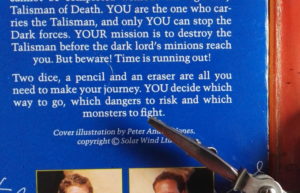
But whereas the above might sound like the background for some kind of Ayn Rand-ish radical individualism, I think the opposite is true; because if any of what I have written is correct, the key part is that it applies equally to everyone. The phrase ‘we’re all in the same boat’ is being bandied about a lot lately for pandemic-related reasons, and it’s only vaguely true as regards that particular situation. We aren’t in the same boat, or even necessarily in the same kind of body exactly, but what we as human beings do all share – broadly – is the same kind of brain. We are all individuals, and If we are conscious, we are probably self-conscious. And given that we live our – as far as we can safely tell – single earthly life as an individual human being, the idea that any of us is powerless during that lifetime is nonsense. When asked to name someone who has made a difference to the world, the first person you think of should be yourself. There would be no world as you know it without you in it, and that is not a small thing; by existing, you are changing the world. Whether for better or worse, only you can say.

Having faith in other people (or even just getting along with them) makes both your and their lives better, but the belief that one particular individual outside of yourself may be the solution to the world’s (or the country’s, etc) problems is worse than feeling powerless yourself. Not only because it can reinforce that sense of powerlessness, but because it’s blatantly untrue and (I hate to use this completely devalued word, but never mind) elitist. Also, it reduces every issue, however complex, to a finite, success-or-failure one, which is rarely how the world works. The idea of the lone hero as saviour probably has about as much validity as the idea of the lone villain as the cause of whatever ills need to be cured. Hero-worship is both logical (because we see the world from the viewpoint of “I”) and also an oddly counter-intuitive ideal to have created, since in reality as we know it, the lone individual may be us, but is largely not how we live or how things work. Human beings have structured their societies, whether on the smaller level of family or tribe, to the larger ones like political parties or nations, in terms of groups of people. But I suppose it is the same humanity that makes us aware of and empathetic to the feelings of others that makes us want to reduce ideas to their black and white, bad vs good essentials and then dress those ideas up in human clothes.
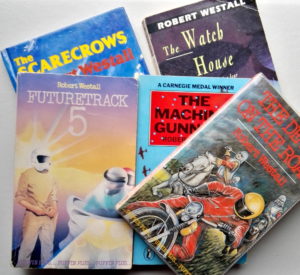
And so, to books! Reading fiction and watching films and TV, it’s amazing how the larger-than-life (but also simpler and therefore ironically smaller-than-life) hero/ine vs villain, protagonist vs antagonist and – most hackneyed of all (a speciality of genre fiction since such a thing existed, and the preserve or religion and mythology before that) – the ‘chosen one’ vs ‘dark lord’ narrative continues to be employed by writers and enjoyed by generations of people (myself included*), long past the age that one becomes aware of the formulaic simplification of it.
*for people of my generation, the mention of a ‘dark lord’ immediately conjures up Star Wars and Darth Vader/The Emperor, though the ‘chosen one’ theme is thankfully underplayed in the original Star Wars trilogy. George Lucas doesn’t get much credit for the prequels, but making the chosen one become the dark lord is an interesting twist, even if Lucifer got there first.
Whatever its origins, it seems that people do want these kinds of figures in their lives and will settle for celebrities, athletes, even politicians in lieu of the real thing. Hitler was aware of it and cast himself in the lead heroic role, ironically becoming, to posterity, the antithesis of the character he adopted; Lenin, who by any logical reading of The Communist Manifesto should have been immune to the lure of hero worship, also cast himself in the lead role, as did most of his successors to the present day; and really, to enthusiastically espouse Marxism and then approve a monumental statue of oneself displays, at best, a shocking lack of self-awareness. The Judeo-Christian god with its demand, not only to be acknowledged as the creator of everything, but also to be actually worshipped by his creations, even in his Christian, fallible, supposedly just-like-us human form, is something of a special case, but clearly these are primordial waters to be paddling in.
Still, entertainment-wise, it took a kind of epic humbling to get even to the stage we’re at now. Heroes were once demi-gods; Gilgamesh had many adventures, overcame many enemies, but when trying to conquer death found that he could not even conquer sleep. Fallible yes, but hardly someone to identify with. And Cain killed Abel, David killed Goliath, Hercules succeeded in his twelve tasks but was eventually poisoned by the blood of a hydra, Sun Wukong the Monkey King attained immortality by mistake while drunk, Beowulf was mortally wounded in his last battle against a dragon. Cúchulainn transformed into a monstrous creature and single-handedly defeated the armies of Queen Medb. King Arthur and/or the Fisher King sleep still, to be awoken when the need for them is finally great enough. These are heroes we still recognise today and would accept in the context of a blockbuster movie or doorstop-like fantasy novel, but less so in say, a soap opera or (hopefully) on Question Time. I knew some (but not all) of these stories when I was a child, but all of them would have made sense to me because, despite the differences between the settings and the societies that produced them and that which produced me, they are not really so vastly different from most of my favourite childhood stories.

Partly that’s because some of my favourite childhood stories were those same ancient stories. But even when not reading infantilised retellings of the Greek myths (I loved the Ladybird book Famous Legends Vol. 1 with its versions of Theseus and the Minotaur and Perseus and Andromeda*) it was noticeable that not all heroes were created equal. There still were heroes of the unambiguously superhuman type (in comics most obviously; like um, Superman), but in most of the books I read, the hero who conquers all through his or her (usually his) all-round superiority was rarely the lone, or sometimes not even the main protagonist. I don’t know if it’s a consequence of Christianity (or just of literacy?) but presumably at some point people decided they preferred to identify with a hero rather than to venerate them. Perhaps stories became private rather than public when people began to read for themselves, rather than listening to stories as passed down by bards or whatever? Someone will know.
*I remember being disappointed by the Clash of the Titans film version of Medusa; too monstrous, less human, somehow undermining the horror for little me
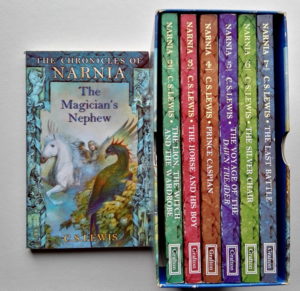
The first real stories that I remember (this would initially be hearing rather than reading) are probably The Hobbit, The Lion, The Witch and The Wardrobe and Charlie and the Chocolate Factory – all of which have children or quasi-children as the main characters. Narnia is a special case in that there is a ‘chosen one’ – Aslan the lion – but mostly he isn’t the main focus of the narrative, Far more shadowy, there are books I was read that I never went back to and read by myself, like Pippi Longstocking and my memory of those tends to be a few images rather than an actual story. As a very little kid I know I liked The Very Hungry Caterpillar and its ilk (also, vastly less well known, The Hungry Thing by Jan Slepian and Ann Seidler in which, as I recall, some rice would be nice said a baby sucking ice). Later, I loved Tintin and Asterix and Peanuts and Garfield as well as the usual UK comics; Beano, Dandy, Oor Wullie, The Broons, Victor and Warlord etc.
The first fiction not reliant on pictures that I remember reading for myself (probably around the Beano era) would be the Narnia series (which I already knew), Richmal Crompton’s William books and, then Biggles (already by then an antique from a very different era), some Enid Blyton (I liked the less-famous Five Find-Outers best), Lloyd Alexander’s Chronicles of Prydain, and Willard Price’s Adventure series. Mostly these were all a bit old fashioned in the 80s now that I look at them, but I tended then as now to accumulate second hand books.
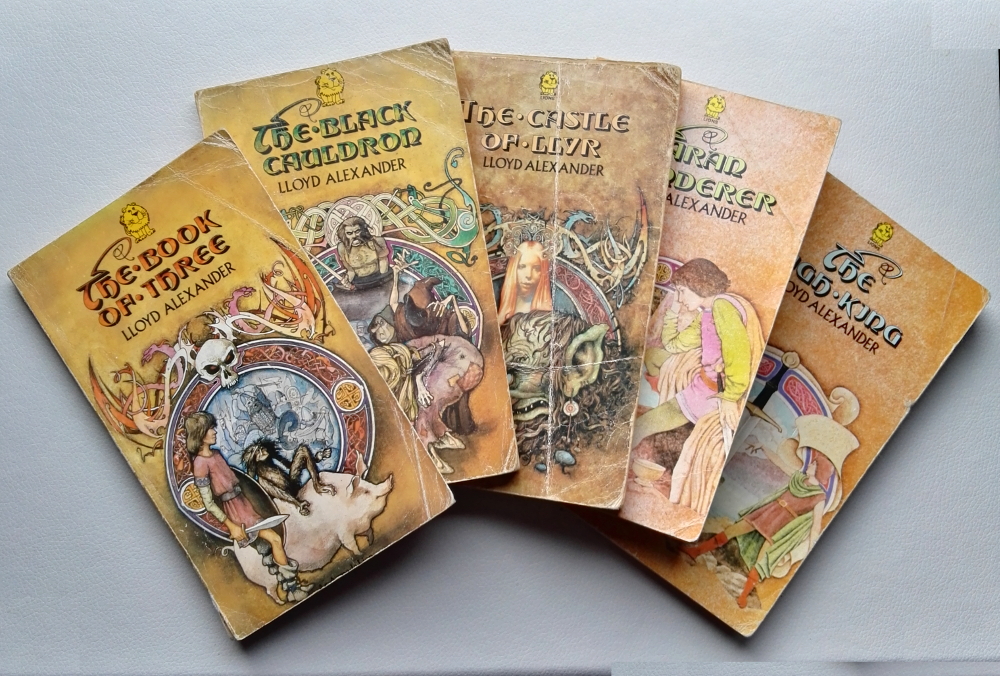

There was also a small group of classics that I had that must have been condensed and re-written for kids – a little brick-like paperback of Moby-Dick (Christmas present) and old hardbacks of Robinson Crusoe, Treasure Island and Kidnapped with illustrations by Broons/Oor Wullie genius Dudley D. Watkins (bought at ‘bring and buy’ sales at Primary School). Watkins’s versions of Crusoe, Long John Silver etc are still the ones I see in my head if I think of those characters. More up to date, I also had a particular fondness for Robert Westall (The Machine Gunners, The Scarecrows, The Watch House etc) and the somewhat trashy Race Against Time adventure series by JJ Fortune. This was a very 80s concoction in which a young boy from New York called Stephen, is picked up by his (this was the initial appeal) Indiana Jones-like Uncle Richard and, unbeknownst to his parents, hauled off around the world for various implausible adventures. I liked these books so much (especially the first two that I read, The Search for Mad Jack’s Crown – bought via the Chip Book Club which our school took part in – and Duel For The Samurai Sword) that I actually, for the first and last time in my life, joined a fan club. I still have the letter somewhere, warning me as a “RAT adventurer” to be prepared to be whisked away myself. Didn’t happen yet though. And then there were gamebooks (a LOT of them), which have a special place here because they fundamentally shift the focus of the narrative back to the direct hero-conquers-all themes of ancient mythology, while adding the twist that the reader themselves is that hero.
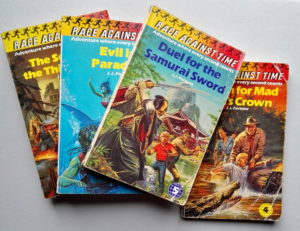
There were also books I wouldn’t necessarily have chosen but was given at Christmas etc, books by people like Leon Garfield (adventures set in a vividly grotty evocation of 18th and early 19th century London), the aforementioned Moby-Dick, a comic strip version of The Mutiny on the Bounty, a Dracula annual. Also authors who I read and loved one book by, but never got around to reading more of; Anne Pilling’s Henry’s Leg, Jan Mark’s Thunder and Lightnings ( there’s a moving article about this beautifully subtle book here), Robert Leeson’s The Third Class Genie. And then there were also things we had to read at school, which mostly didn’t make a huge impression and are just evocative titles to me now – The Boy with the Bronze Axe by Kathleen Fidler and The Kelpie’s Pearls by Molly Hunter, Ian Serralliers’s The Silver Sword, Children on the Oregon Trail by Anna Rutgers van der Loeff and The Diddakoi by Rumer Godden. What did I do as a kid apart from reading?
Anyway; that’s a lot of books. And in the vast majority of them, the conclusion of the plot relies on the main character, or main character and sidekick or team to take some kind of decisive action to solve whatever problem they have. Heroism as the ancient Greeks would have understood it may largely have vanished, but even without superhuman strength or vastly superior cunning (even the fantasy novels mentioned like Lloyd Alexander’s which do still have the chosen one/dark lord idea at their heart, tend to have a fallible, doubt-filled human type of hero rather than a demigod) there is still the idea that the individual character is what matters.
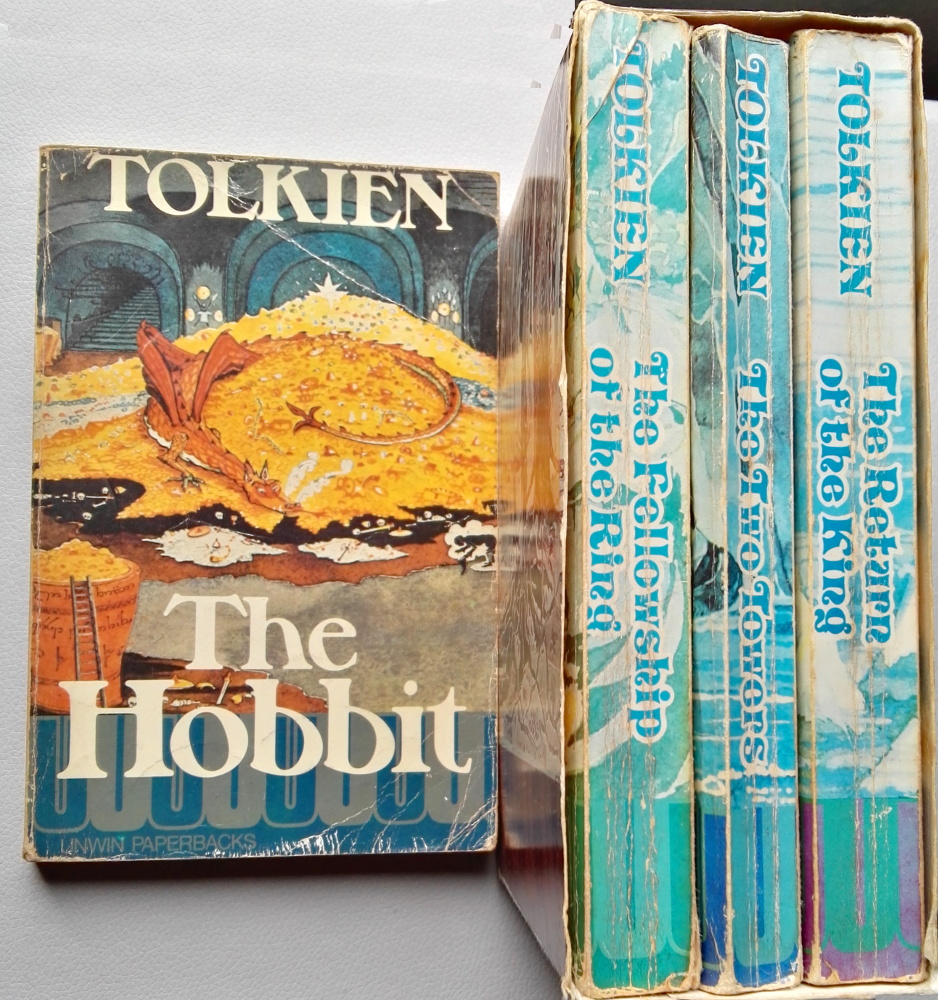
And that makes sense – something like the ‘battle of five armies’ towards the end of The Hobbit is dull enough with the inclusion of characters that the reader has come to care about. A battle between armies of nameless ciphers (think the ‘Napoleonic Wars’ sans Napoleon) would be hard to get too involved in (cue image of generals with their model battlefields moving blocks of troops about, with little or no danger to themselves). Which is fair enough – being in a battle might well feel impersonal, but reading about one can’t be, if the reader is to feel any kind of drama. And maybe this is the key point – reading is – albeit at one remove – a one-on-one activity. Stephen King likens it to telepathy between the writer and reader and that is the case – they think it, we read it and it transfers from their minds to ours. And since reading is something that people seem to think children have to be made to do, often against their will, children’s authors in particular are understandably keen to engage the reader by making them identify with one character or another.
I don’t think it’s a coincidence that the most successful writers for children from CS Lewis to Enid Blyton to JK Rowling (to name just notable British ones) have tended to make children the protagonists of their books and surround their main characters with a variety of girls and boys of varying personality types. Children’s books about children are (I find) far easier to re-read as an adult than children’s books about adults are. As an adult, even JJ Fortune’s “Stephen” rings more or less true as a mostly bored tweenager of the 80s, while his Uncle Richard seems both ridiculous and vaguely creepy. “Grown up” heroes like Biggles, very vivid when encountered as a child, seem hopelessly two-dimensional and childish as an adult; what do they DO all day, when not flying planes and shooting at the enemy?
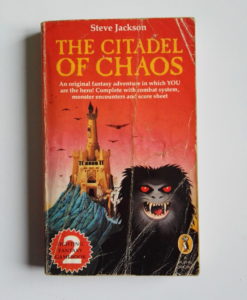
I mentioned gamebooks above and they – essentially single-player role playing games, often inspired by Dungeons and Dragons – deserve special mention, partly just because in the 80s, there were so many of them. There were series’ I followed and was a completist about (up to a point) – first and best being Puffin’s Fighting Fantasy (which, when I finally lost interest in them, consisted of around 30 books), there was its spin-off Steve Jackson’s Sorcery (four books), Joe Dever and Gary Chalk’s Lone Wolf (seven or eight books), Grey Star (four books), Grailquest (I think I lost interest around vol 5 or 6), then quite a few series’ that I quite liked but didn’t follow religiously – Way of the Tiger (six books), Golden Dragon (six books), Cretan Chronicles (three books) and series’ I dipped into if I happened to come across them: Choose Your Own Adventure (essentially the first gamebook series, but they mostly weren’t in the swords & sorcery genre and felt like they were aimed at a younger readership), Demonspawn (by JH Brennan, the author of Grailquest, but much, much more difficult), Falcon (time travel) and Sagard the Barbarian (four books; the selling point being that they were by D&D co-creator Gary Gygax. They were a bit clunky compared to the UK books).
Sudden memory; even before encountering my first Fighting Fantasy book, which was Steve Jackson’s Citadel of Chaos, actually the second in the series, I had bought (the Chip club again), Edward Packard’s Exploration Infinity, which was one of the Choose Your Own Adventure series, repackaged for the UK I guess, or maybe a separate book that was later absorbed into the CYOA series? Either way, there’s a particular dreamlike atmosphere that gives me a pang of complicated melancholy nostalgia when I think of the book now.
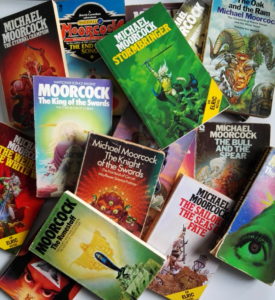
Putting a real person – the reader – at the centre of the action ironically dispenses with the need for “character” at all, and even in books like the Lone Wolf and, Grailquest series’ where YOU are a specific person (“Lone Wolf” in the former, “Pip” in the latter), there is very little sense of (or point in) character building. You are the hero, this is what you need to do, and that’s all you need to know. In many cases, the protagonists of the heroic fantasy novels I devoured in my early teens – when I was drawn to any fat book with foil lettering and a landscape on the cover (the standard fantasy novel look in the 80s) – were not much more rounded than their lightly sketched gamebook counterparts. These books often achieved their epic length through plot only; the truly complex epic fantasy novel is a rare thing.
Thanks, presumably, to Tolkien, these plots generally revolved around main characters who were rarely ‘heroes’ in the ancient mould (though Conan and his imitators were), but were mainly inexperienced, rural quasi-children, thrust into adventures they initially had no knowledge of (Terry Brooks’s Shannara series being the classic Tolkien-lite example). But even when, as in Stephen Donaldson’s also very Tolkien-influenced Chronicles of Thomas Covenant, the hero was a cynical, unpleasant modern human being, or in Michael Moorcock’s deliberately anti-Tolkienesque Eternal Champion series, where s/he was a series of interlinked beings inhabiting the same role within different dimensions of the multiverse, the ‘chosen one’ vs some kind of implacable ‘dark lord’-ish enemy theme remains pretty constant. But this underlying core or skeleton is only most explicit in self-consciously fantastical fiction; whether or not there’s an actual dark lord or a quest, in most fiction of any kind there’s a ‘chosen one’, even if they have only been chosen by the author as the focus of the story she or he wants to tell.
Holden Caulfield and Sylvia Plath’s Esther Greenwood have this in common with Bilbo Baggins, Conan the Barbarian and William Brown. But really, what’s the alternative to books about people anyway? Even novels in which people (or surrogate people like Richard Adams’s rabbits or William Horwood’s moles) are not the main focus (or are half of the focus, like Alan Moore’s peculiar Voice of the Fire, where Northampton is essentially the ‘hero’) rely on us engaging with the writer as a writer, a human voice that becomes a kind of stand-in for a character.
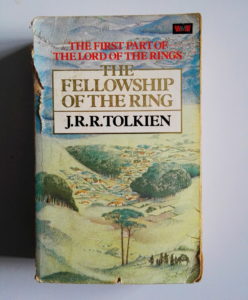
But books are not life; one of the things that unites the most undemanding pulp novelette and the greatest works of literature is that they are to some extent – like human beings – discrete, enclosed worlds; they have their beginning, middle and end. And yet, however much all of our experience relies on our perception of these key moments, that’s not necessarily how the world feels. Even complicated books are simple in that they reveal – just by seeing their length before we read them – the sense of design that is hidden from us or absent in our own lives. Even something seemingly random or illogical (the giant helmet that falls from nowhere, crushing Conrad to death in Horace Walpole’s proto-gothic novel The Castle of Otranto (1764) for example) is deliberate; recognisably something dreamlike, from the human imagination, rather than truly random as the world can be.
What we call history (“things that have happened”) usually can’t quite manage the neatness of even the most bizarre or surreal fiction. There have been genuine, almost superhuman hero/antihero/demigod figures, but how often – even when we can see their entirety – do their lives have the satisfying shape of a story? Granted, Caesar, stabbed twenty three times by his peers in the Senate chamber, has the cause-and-effect narrative of myth; but it’s an ambiguous story where the hero is the villain, depending on your point of view. Whatever one’s point of view in The Lord of the Rings or Harry Potter, to have sympathy with someone referred to (or calling themselves) a ‘dark lord’ is to consciously choose to be on the side of ‘bad’, in a way that defending a republic as a republic, or an empire as an empire isn’t.
Take Genghis Khan – ‘he’ conquered (the temptation is to also write ‘conquered’, but where do you stop with that?) – obviously not alone, but as sole leader – as much of the world as anyone has. And then, he remained successful, had issues with his succession and died in his mid 60s, in uncertain, rather than dramatic or tragic circumstances. The heroes of the Greek myths often have surprisingly downbeat endings (which I didn’t know about from the children’s versions I read) but they are usually significant in some way, and stem from the behaviour of the hero himself. Napoleon, old at 51, dying of stomach cancer or poisoning, a broken man, is not exactly a classic punishment from the Gods for hubris, or an end that anyone would have seen coming, let alone would have written for him. As ‘chosen ones’ go, Jesus is a pretty definitive example, and whether accepted as history or as fiction, he has an ending which, appropriately for god-made-man, manages to fit with both the stuff of myth (rises from the dead and ascends to heaven) but is also mundane in a way we can easily recognise; he wasn’t defeated by the Antichrist or by some supreme force of supernatural evil, but essentially killed by a committee, on the orders of someone acting against their own better judgement. More than anything else in the New Testament, that has the ring of truth to it. A significant detail too for those who want to stress the factual basis of the gospels is that the name of the murderer himself* unlike the nemeses of the ancient heroes, wasn’t even recorded.
* I guess either the guy nailing him to the cross, or the soldier spearing him in the side (much later named as Longinus, presumably for narrative purposes)
And if Jesus’s nemesis was disappointingly mundane, when on occasion, the universe does throw up something approximating a “dark lord” it doesn’t counter them with ‘chosen ones’ to defeat them either, as one might hope or expect. Living still in the shadow of WW2, Hitler’s messy and furtive end, committing suicide when beleaguered and already beaten, somehow isn’t good enough and there are a variety of rival theories about what ‘really’ happened, all of which more pleasingly fit with the kind of fiction we all grow up with. Mussolini was strung up by an angry faceless mob and his corpse was defiled. Hirohito, meanwhile, survived defeat as his troops were not supposed to do, and presided over Japan’s post-war boom to become one of the world’s longest reigning monarchs. The moral of the story is there is rarely a moral to the story. For proof of that, did the ‘heroes’ fare much better? The victors of Yalta lived on to die of a haemorrhage just months later on the eve of the unveiling of the UN (FDR), to be voted out of office, dying twenty years later a divisive figure with an ambiguous legacy (Churchill) and to become himself one of the great villains of the century with a reputation rivalling Hitler’s (Stalin).
Entertainment programs us to view history as the adventures of a series of important ‘main characters’ and how they shaped the world. It’s perhaps as good a ‘way in’ as any – like Frodo taking the ring to Mordor when no human can, or Biggles (almost) single-handedly defeating the Luftwaffe, it makes a kind of sense to us. But the distorted version of history it gives us is something to consider; think of your life and that of (name any current world leader or influential figure; apologies if you are one). If the people of the future are reading about that person, what will that tell them about your life? And what is ‘history’ telling you about really? Things that happened, yes, but prioritised by who, and for what purpose? This is an argument for reading more history, and not less I think. Other people may be the protagonists in books, but in our own personal history we have to take that role.
Artists (and historians too, in a different way) share their humanity with us, and there are great artists – you’ll have your own ideas, but William Shakespeare, Sue Townsend, Albrecht Dürer, Mickalene Thomas, Steven Spielberg and James Baldwin seems like a random but fair enough selection – who somehow have the capacity or empathy to give us insights into human beings other than (and very different from) themselves, but somehow created entirely from their own minds and their own perceptions of the world. But just like them, however aware we are of everyone else and of existence in all its variety, we can only be ourselves, and, however many boxes we seem to fit into, we can only experience the world through our own single consciousness. If there’s a chosen one, it’s you. If there’s a dark lady or a dark lord, it’s also you.


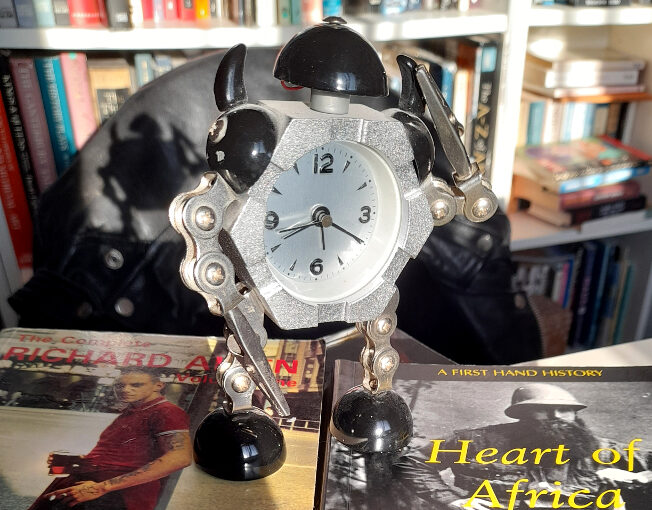
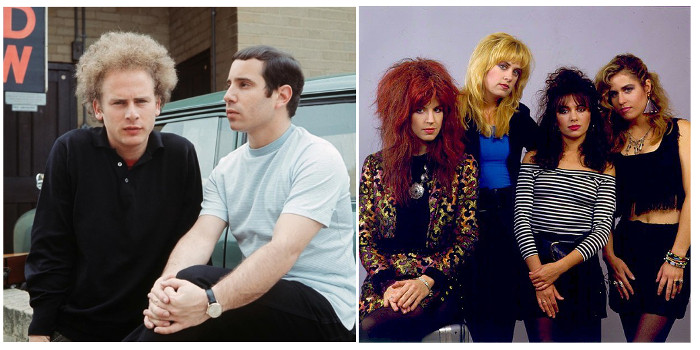
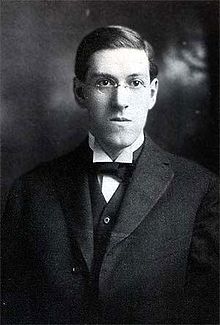 It’s approximately 90 years since HP Lovecraft wrote, “The oldest and strongest emotion of mankind is fear, and the oldest and strongest kind of fear is the fear of the unknown.” (in the essay Supernatural Horror in Literature (1926-7)), and it’s got to be something like 25 years or so since I first read those words (in the HP Lovecraft Omnibus Vol 2, Dagon and other Macabre Tales, Grafton Books, 1985, p.423 ). So what about it?
It’s approximately 90 years since HP Lovecraft wrote, “The oldest and strongest emotion of mankind is fear, and the oldest and strongest kind of fear is the fear of the unknown.” (in the essay Supernatural Horror in Literature (1926-7)), and it’s got to be something like 25 years or so since I first read those words (in the HP Lovecraft Omnibus Vol 2, Dagon and other Macabre Tales, Grafton Books, 1985, p.423 ). So what about it?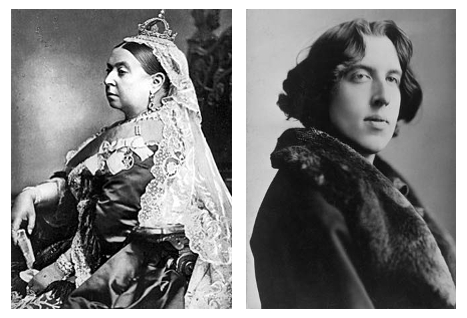
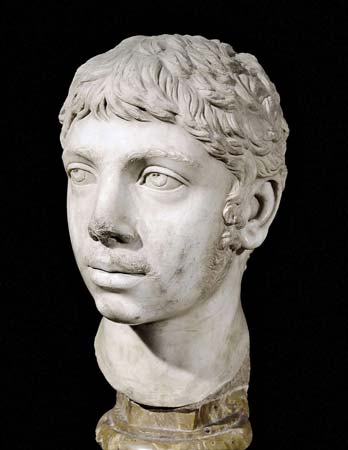 This kind of complexity is what makes history more interesting than it’s sometimes given credit for. The Scottish Enlightenment was a wonderful, positive, outward-looking movement, but it coexisted in Scotland with a joyless, moralising and oppressive Calvinist culture. Time and nostalgia have a way of homogenising peoples and cultures. The popular idea of ancient Rome is probably one of conquest, grandeur and decadence, but what is the popular idea, if there is one, of ‘an ancient Roman’? Someone, probably a man, probably from Italy, in a toga or armour; quite likely an emperor, a soldier or a gladiator, rather than say, a merchant, clerk or farmer. But even within this fairly narrow image, a complex figure like the emperor Elagabalus (who was Syrian, teenage, possibly transgender) defeats the obvious school textbook perceptions of ‘Roman-ness’ (as, perhaps, it did for the Romans themselves). Even in our own time, the fact that older generations from the 60s/70s to the present could lament the passing of times when ‘men were men & women were women’ etc is – to say the least – extremely disingenuous. Presumably what they mean is a time when non-‘manly’ men could be openly discriminated against and/or abused and women could be expected to be quiet and submissive.
This kind of complexity is what makes history more interesting than it’s sometimes given credit for. The Scottish Enlightenment was a wonderful, positive, outward-looking movement, but it coexisted in Scotland with a joyless, moralising and oppressive Calvinist culture. Time and nostalgia have a way of homogenising peoples and cultures. The popular idea of ancient Rome is probably one of conquest, grandeur and decadence, but what is the popular idea, if there is one, of ‘an ancient Roman’? Someone, probably a man, probably from Italy, in a toga or armour; quite likely an emperor, a soldier or a gladiator, rather than say, a merchant, clerk or farmer. But even within this fairly narrow image, a complex figure like the emperor Elagabalus (who was Syrian, teenage, possibly transgender) defeats the obvious school textbook perceptions of ‘Roman-ness’ (as, perhaps, it did for the Romans themselves). Even in our own time, the fact that older generations from the 60s/70s to the present could lament the passing of times when ‘men were men & women were women’ etc is – to say the least – extremely disingenuous. Presumably what they mean is a time when non-‘manly’ men could be openly discriminated against and/or abused and women could be expected to be quiet and submissive.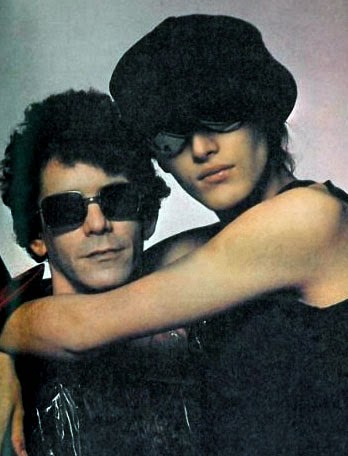
 It’s an interesting point. The fleetingness with which you experience things has nothing to do with their power as memories. I have no idea what the first horror film I saw was, but I do know that a scene on some TV show where skinheads (or possibly a single skinhead) glued a man’s hands to the wall of a lift/elevator scared me as a child and stayed with me for a long time. Maybe that was because I used to see skinheads around on the streets (you had to watch the colour of the laces in their Doc Martens to see if they were ‘bad’ skinheads or not – though they were probably kids too, I now realise). I also know now (but didn’t then) that these were the
It’s an interesting point. The fleetingness with which you experience things has nothing to do with their power as memories. I have no idea what the first horror film I saw was, but I do know that a scene on some TV show where skinheads (or possibly a single skinhead) glued a man’s hands to the wall of a lift/elevator scared me as a child and stayed with me for a long time. Maybe that was because I used to see skinheads around on the streets (you had to watch the colour of the laces in their Doc Martens to see if they were ‘bad’ skinheads or not – though they were probably kids too, I now realise). I also know now (but didn’t then) that these were the 